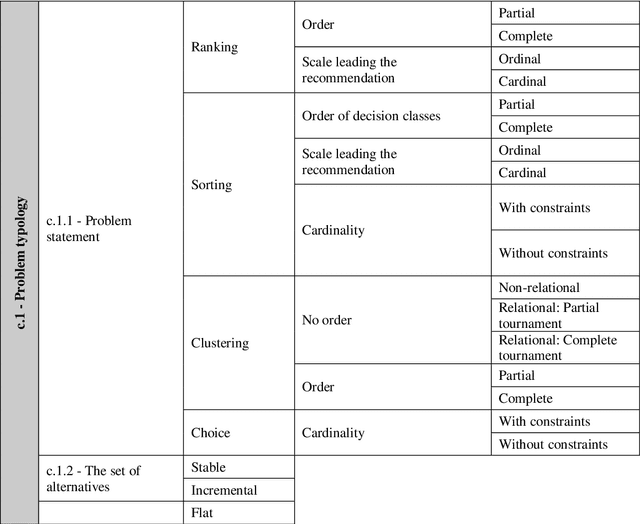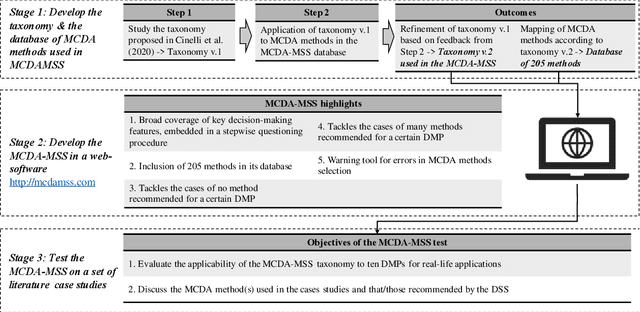Grzegorz Miebs
Technology prediction of a 3D model using Neural Network
May 07, 2025Abstract:Accurate estimation of production times is critical for effective manufacturing scheduling, yet traditional methods relying on expert analysis or historical data often fall short in dynamic or customized production environments. This paper introduces a data-driven approach that predicts manufacturing steps and their durations directly from a product's 3D model. By rendering the model into multiple 2D images and leveraging a neural network inspired by the Generative Query Network, the method learns to map geometric features into time estimates for predefined production steps enabling scalable, adaptive, and precise process planning across varied product types.
Recommending Multiple Criteria Decision Analysis Methods with A New Taxonomy-based Decision Support System
Jun 08, 2021



Abstract:We present the Multiple Criteria Decision Analysis Methods Selection Software (MCDA-MSS). This decision support system helps analysts answering a recurring question in decision science: Which is the most suitable Multiple Criteria Decision Analysis method (or a subset of MCDA methods) that should be used for a given Decision-Making Problem (DMP)?. The MCDA-MSS includes guidance to lead decision-making processes and choose among an extensive collection (over 200) of MCDA methods. These are assessed according to an original comprehensive set of problem characteristics. The accounted features concern problem formulation, preference elicitation and types of preference information, desired features of a preference model, and construction of the decision recommendation. The applicability of the MCDA-MSS has been tested on several case studies. The MCDA-MSS includes the capabilities of (i) covering from very simple to very complex DMPs, (ii) offering recommendations for DMPs that do not match any method from the collection, (iii) helping analysts prioritize efforts for reducing gaps in the description of the DMPs, and (iv) unveiling methodological mistakes that occur in the selection of the methods. A community-wide initiative involving experts in MCDA methodology, analysts using these methods, and decision-makers receiving decision recommendations will contribute to expansion of the MCDA-MSS.
 Add to Chrome
Add to Chrome Add to Firefox
Add to Firefox Add to Edge
Add to Edge